How to become an aidworker?
Last updated: Dec 27 2011 (updated all links)
One of the goals of this site is to provide people with inspiration, and -if possible- make them think about humanitarian issues. So, getting that amount of queries is really great, and I try to give sufficient information to get them on their way.
If you have been interested in this field of work, but never dared to ask the question, then today's post, is your post: "How to become an aidworker, in 1-2-3" or something like that :-)
1. On the crossroads of life?
Many of the people who wrote to me, talked about being on the crossroads of life. Looking for a new challenge, a new meaning-full job. Have a read how I got into this work and why I am an aidworker...
2. What is "Aid Work"? What is "Development Work"? How Does It All Work?
Before we start, you should definitively have a look at this excellent eLearning tool from Alertnet. You might also have a look at this list of excellent introduction manuals from All-In Diary.
3. What kind of people are these humanitarian organisations interested in?
or "Do I have to be a doctor or a nurse to work in the humanitarian field?"
The internal support part has people working in accounting, budgeting, marketing, public relations, human resources, procurement, administration, ICT... These would all be people whose job it is to support those working in the external part.
4. Do YOU have what it takes to become an aidworker?
I agree with some parts in the video on the top of this post. People often have the image of us, aidworkers, as taking pictures with kids on our knees, singing 'We
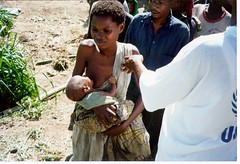 Are the World',... The reality is rather different. But we are not all hardcore logisticians neither. We don't all work in the desert or in the jungle, thousands of miles from no-where... Probably more than half of us work in the 'deep field'. Many of us do spend a lot of time in an office too!
Are the World',... The reality is rather different. But we are not all hardcore logisticians neither. We don't all work in the desert or in the jungle, thousands of miles from no-where... Probably more than half of us work in the 'deep field'. Many of us do spend a lot of time in an office too!Up to 2009 Patronus Analytical kept track of all incidents related to humanitarian workers in the field.
Now to the practical points:
5. Things to consider when you want to volunteer.
There are two groups of volunteers:
- the real short term: volunteering while travelling or just "giving up" two, three weeks of your time
- the longer term volunteer.
The volunteering traveller, the travelling volunteer, the short term stuff:
There are commercial and non-profit "tour operators" which organise volunteering holidays. You pay, and you can go off helping to build a school in Vietnam for instance.. Nothing against that, and many of those companies do good work. You can find them easily if you Google "volunteering, abroad". Just make sure that the fee they ask you is justified. The good-will, the humanitarian part should dominate the commercial and financial aspect.
People often say "I want to volunteer two weeks of my time, and look for something in Congo".. Well, not much of a chance, unless if you want to pay for it. Sounds odd, but it takes a while before you are run in, and become 'useful' to the organisation. The organisation has to invest a certain amount of time to get you up to speed, to guide you through your first weeks. They also have a cost in 'administrating' you. And you make - directly or indirectly - use of their infrastructure. All of this comes at a cost, an overhead cost. So they expect you to compensate for that. Again, make sure they justify their cost, and it sounds reasonable.
Exceptions do confirm the rule. There are cases where you are really specialized in what you do, and find a corresponding volunteering short term job in that specialization. Or you have done that kind of job, or have worked for that organisation several times before. For these, one could expect the fee the organisation asks, to be less.
The longer term volunteer.
The longer time you volunteer, and the more specialized or experienced you are, the higher the chances the organisation will compensate your cost, give you free boarding and meals, pay for your travel, or even pay a small fee for your services.
Even if the organisation is paying for all expenses, make sure you are also covered by an insurance (illness, medivac, accidents, etc..), either through them, or through your own insurance. Travelling abroad to remote areas has a certain risk of accidents (did you know most of the casualties we suffer are not caused by bullets or illness, but by car accidents?), illness or similar doomsday scenarios. Better safe than sorry, so make sure you understand how you are covered! By the organisation? Or do they expect you to cover yourself? And does your normal medical insurance cover you if you are travelling to Timbuktu or Upchawayaya? Are you sure?
6. How to make contacts as a candidate-volunteer?
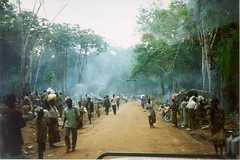 There are organisations (like the UN Volunteers-UNV) specializing in recruiting and guiding volunteers. Try also onlinevolunteering.org even if you only have a few hours per week to help. You can also go to the different webpages of the humanitarian organisations to see if they have a specific internship or volunteering programme. Lists of humanitarian organisations you can find on Alertnet and at People in aid. Alertnet lets you check which organisation is working where.
There are organisations (like the UN Volunteers-UNV) specializing in recruiting and guiding volunteers. Try also onlinevolunteering.org even if you only have a few hours per week to help. You can also go to the different webpages of the humanitarian organisations to see if they have a specific internship or volunteering programme. Lists of humanitarian organisations you can find on Alertnet and at People in aid. Alertnet lets you check which organisation is working where.You can then apply through the organisation's main office. Or, dependent on the type of organisation, your chances might be higher if you apply directly to a field office in a country of your choice. Try to find the email contacts from that field office through the webpages of the organisations. Often you also increase your chances if you find someone of your nationality in those field offices.. It immediately opens up a door.
Also have a read through Jayne's post on volunteering. It also lists a wide range of organisations.
7. No, I want to do this full-time. Who employs?
Ok. Many different ways, many different contract types, different durations, different organisations...
- NGOs (Non-Governmental Organisations) either local and international one. This is the gross of the humanitarian organisations. Well known names are Care, Save the Children, Oxfam,..
- GO (Governmental Organisations), which are often part of the Ministry of International Development (or something of that kind) of a government. DFID, USAID are just a few examples. Most of the time, you need to be a citizen of that country.
- IO (International Organisations), which are like NGOs but with a large distributed network of local organisations. Well known IO are MSF, IFRC and ICRC (the 'Red Cross and Red Crescent Movement).
- UN (United Nations). Forget the UN security council, and the big UN buildings in New York. The UN humanitarian organisations are quite independent from them, and each have their own funding, their particular work territory and/or specialization. Well known UN humanitarian organisations are UNICEF, UNHCR and WFP. But there are others: OCHA, WHO, UNIFEM, UNFPA, UNDP etc.. Just scan www.un.org and you will find most of them.
8. Where are the jobs advertised?
Well not in the Financial Times, that's for sure.... A list of vacancies you can often find on the organisations' webpages. And then there are lists of vacancies, and lists and lists...
As there is not one central place where you can scan all vacancies, I made my own website "AidJobs", where you can find the latest openings for volunteering positions, consultancies, internships and full time employment. You can track the latest vacancies on Twitter (follow @AidJobs) and the AidJobs Facebook page.
Here is an overview of individual lists:
- There is a global one on Reliefweb
- ...and there is a another global list on Alertnet.
- UN Wire also has a list of vacancies.
- A bit broader view on vacancies, you find in Philanthropy.com
- ...and on Idealist.org.
- UNJobs features the most recent UN jobs too.
- Many vacancies in the UN, you find on the UN website.
- You might also look at the list on Devex.
Say you are an accountant. Well look for contacts in the finance departments of the different organisations. Look up names, give them a call, write emails. When they get to know you one way or the other, and are interested in your resumee, often they will go to the HR departments stating "I want THIS person, recruit him/her".
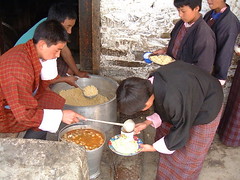 Well, it depends on your specialization. A generalist (someone applying for jobs in the internal support departments, see higher), can apply in any organisation. The more specialized you are as a generalist, the smaller the niche, but also the higher the chances for success.
Well, it depends on your specialization. A generalist (someone applying for jobs in the internal support departments, see higher), can apply in any organisation. The more specialized you are as a generalist, the smaller the niche, but also the higher the chances for success. 10. Oh and by the way: What's the difference between an aid worker and a development worker?
In two words: An aidworker specializes in acute emergencies. The short term stuff. A development worker specializes in the longer term work, in sustainability... Both are needed. You can not only give people fish, you also need to teach them how to fish. But a starving person is not interested in learning how to fish. He wants to eat first...
PPS: Check out the excellent article "Advice for First-Time Aid Workers". It is published on aidworkers, an excellent resource made by and for aidworkers. (Thanks, Tom!)
Video courtesy of WFP
Read the full post...

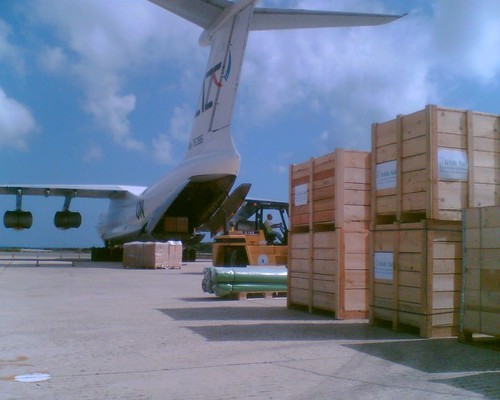

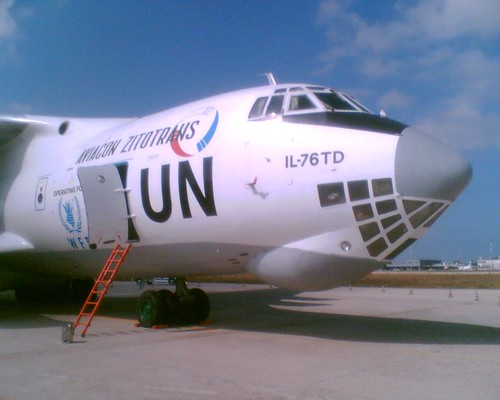
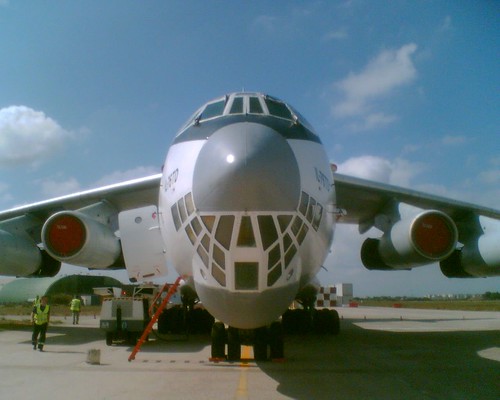
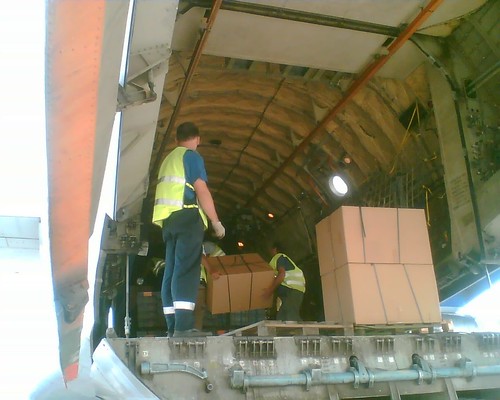
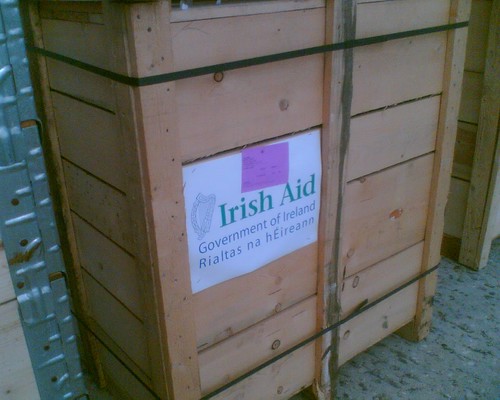
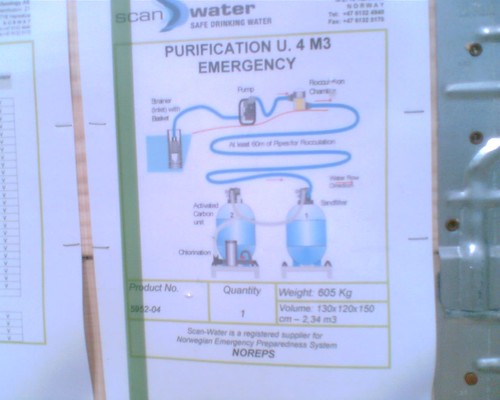
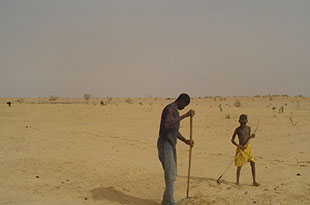 A U.N. agency has come up with a radical new idea to pre-empt drought-related famines: insurance.
A U.N. agency has come up with a radical new idea to pre-empt drought-related famines: insurance.















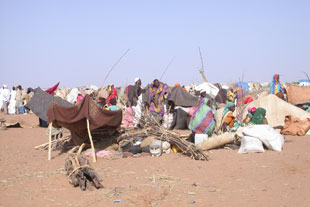

 Peter. Flemish, European, aid worker, expeditioner, sailor, traveller, husband, father, friend, nutcase. Not necessarily in that order.
Peter. Flemish, European, aid worker, expeditioner, sailor, traveller, husband, father, friend, nutcase. Not necessarily in that order.
The Road's Dashboard
Log in
New
Edit
Customize
Dashboard